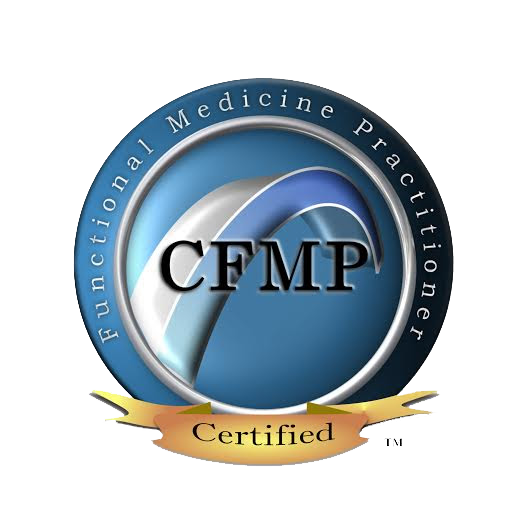 Food sensitivities are often a root cause of a wide range of symptoms. I have had patients for whom food sensitivities were causing things like: joint pain, fatigue, stomach pain, chronic sinus problems, rashes, headaches, seizures, hair loss, nausea, constipation, diarrhea, nagging coughing, weak immune system, heartburn and bloating. I am often amazed at what a food sensitivity to even a healthy food can cause. If you are dealing with some frustrating health problems that no one can figure out, food sensitivities could be what is causing or contributing to your problem.
Food sensitivities are often a root cause of a wide range of symptoms. I have had patients for whom food sensitivities were causing things like: joint pain, fatigue, stomach pain, chronic sinus problems, rashes, headaches, seizures, hair loss, nausea, constipation, diarrhea, nagging coughing, weak immune system, heartburn and bloating. I am often amazed at what a food sensitivity to even a healthy food can cause. If you are dealing with some frustrating health problems that no one can figure out, food sensitivities could be what is causing or contributing to your problem.
Food sensitivities are not food allergies.
Food allergies are different from food sensitivities in 3 ways
- Food allergy reactions happen pretty quickly after eating the allergen-containing food. Sensitivities happen 24 to 72 hours after eating offending foods.
- Allergic reactions are easy to recognize. A person eats something they are allergic to and, bada bing, bada boom, they can’t breath or they break out in hives. Sensitivities, because they are delayed, and because of the various symptoms can cause, can be difficult to connect to the food eaten 1-3 days ago.
- Food allergy testing is pretty straight forward. Skin and blood testing are good ways to find out what kinds of food allergies a person has. Testing for food sensitivities can range from a great investment to a waste of money. I will go into this more in a bit, but not all testing for food sensitivities is helpful.
What is a food sensitivity?
A food sensitivity happens when a food triggers a negative reaction in the immune system. These reactions involve different parts of the immune system (IgG, IgA, IgM, Histamine, Prostaglandins, Cytokines, Leukotrienes, etc.) and as a result the negative effects are experienced in many ways. This is why one patient may have their joint pain goes away after eliminating an offending food, while another patient’s intestinal issues clear up . What kind of negative immune reaction, and what effect that reaction will have, is greatly influenced by genetics and what kinds of problems a person is dealing with.
What causes food sensitivities?
Genetics influence food sensitivities. In fact today the risk of some food sensitivities can be determined by genetic testing. For example HLA-DQ2 and DQ8 testing has been strongly connected to gluten sensitivity and even predictive of outright celiac disease. I expect as genetic testing advances, more connections between food and genetics will be discovered.
The most common cause of food sensitivities is a leaky gut, which makes lots of sense. An intestinal tract that is damaged allows things into the bloodstream that don’t belong in the blood including large molecules of food. Once these “foreign” molecules are encountered by the immune system, a negative reaction is going to occur and BAM a food sensitivity is born. I have seen many patients’ food sensitivities change after a leaky gut is healed. This also makes sense. If the immune system is not bombarded with foreign food molecules, it is no longer fighting them and the immune reaction goes away.
How are food sensitivities discovered?
The cheapest, but most frustrating way to find food sensitivities is the elimination diet. The cost is free! However most patients that give this a try end up frustrated. The general idea of the elimination diet is to stop eating the most common foods that can cause problems for three weeks, and then introduce them one at a time to see if they cause any adverse symptoms. This can work well for detecting food ALLERGIES. Due to the delayed nature of sensitivities, and the fact that sometimes people are sensitive to things traditionally thought of a safe, this diet can be confusing. I used to use this, but have abandoned it for better methods.
Testing for food sensitivities is what I recommend. However, there are LOTS of different tests out there, and as of this writing there is only one test I trust.
Problems with testing
Remember I defined a food sensitivity as a certain food causing a negative immune response, altering things like IgG, IgA, IgM, Histamine, Prostaglandins, Cytokines and Leukotrienes. There is no test out there that measures all of these substances in response to different foods. There are tests that measure IgG and IgA. These are good but limited, and the reliability of these tests can be poor.
It’s important to remember that NO TEST IS PERFECT. Every test has its strengths and weaknesses. All test results need to be taken in with an eye to all the other results and factors. I expect that every food sensitivity test result I see is going to have some error. This doesn’t mean I throw the baby out with the bath water. I work with my patient to make the most good out of these tests as possible. What I see in my patients is that often a food sensitivity test is a life saver.
Mediator Release Testing (MRT)
This is the test I have used for years now and love. This test is different from the rest in two big ways.
- It is the only test I know of that has good science demonstration in its sensitivity (94.5%) and specificity (91.8%).
- The MTR does not test all the different things a food sensitivity can cause like IgG and IgA. Instead it looks at the white blood cells’ reaction to food. If there is no reaction to rice then that person’s immune system is not sensitive to rice. If the white blood cell reacts in any way to a food, it means that it doesn’t like it and has a sensitivity to the offending food.
How the MRT results are applied is genius!
Most food sensitivity results are applied by simply removing the foods that are bad. MRT results are applied by having the patient eat only the tested safest foods for 2 weeks and then gradually introduce foods that tested less safe. The advantage is that it allows the patient’s immune system to calm down, and when foods are introduced later it’s easier to tell if a food is a problem for them.
My favorite food sensitivity story
You can read Justin’s story here. I can’t give you all the medical details. What amazed me about Justin was the dramatic change that happened after we discovered his food sensitivities. The joint pain that Justin had was limiting his activities and ability to work. After he was free from the problems his food sensitivities were causing he was able to return to his active lifestyle. I would not have guessed that food was going to be the root cause. I expected other more serious problems in several categories.
Testing is so important. If I would not have tested Justin for food sensitivities, he would probably still be in pain today. Testing is a gift that allows my patients and me not to have to guess about their symptoms.
If you would like more information on MRT feel free to comment below or contact my office.



